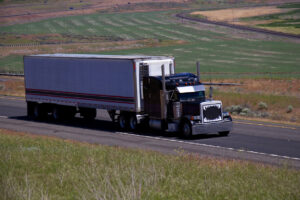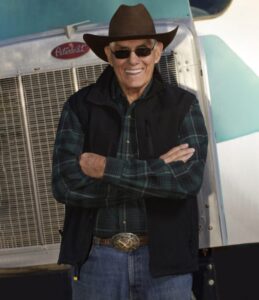BOSTON and LEINFELDEN-ECHTERDINGEN, Germany — After its first full year as an independent listed company, Daimler Truck Holding AG recently hosted its Capital Market Day 2023 in Boston.
The main topics were “the guidance increase for 2023, the confirmation of 2025 ambitions, an enhanced capital allocation policy and the path towards 2030, transforming the company for sustainable growth,” according to a company statement.
“Daimler Truck is doing very well. We are increasing our guidance for 2023. We are firmly on track to deliver on our 2025 ambitions. And we are ready to take Daimler Truck to the next level by 2030 — aiming for above 12% adjusted return on sales for the Industrial Business in sunny conditions. We are initiating a share buyback program of up to two billion euros over a period of up to two years to make sure our shareholders fully benefit from our successful development. Our flexible technology strategy enables us not only to navigate the historic transformation of our industry, but to capture all opportunities associated with it. In short: Daimler Truck is transforming for sustainable growth — to the benefit of our employees, our customers and our shareholders,” said Martin Daum, chairman of the Board of Management of Daimler Truck.
After a strong first quarter in 2023 and an increase in unit sales in Q2, Daimler Truck continues to see a positive momentum for the remaining financial year, a news release states.
In the second quarter of 2023, worldwide unit sales of the group increased by 9.0% versus the prior year quarter, selling in total 131,888 units (Q2/22: 120,961). All segments contributed positively to this year-over-year increase: Trucks North America +14.7% with 50,618 units (Q2/22: 44,124), Mercedes-Benz +1.1% with 39,236 units (Q2/22: 38,812), Trucks Asia +9.2% with 40,097 units (Q2/22: 36,704) and Daimler Buses +21.8% with 6,181 units (Q2/22: 5,075).
These developments result in an increased group revenue guidance between $61 billion and $63 billion, company officials said.
Technology strategy: Creating value for customers and scale for Daimler Truck
“Daimler Truck sets itself the clear ambition to lead the transformation towards sustainable transportation,” according to the news release. “Therefore, the company’s focus lies on two technology fields that provide the highest differentiation for customers and the largest economies of scale. Power to drive, comprising the propulsion system, and intelligence to drive, focusing on electronics and software.”
For power to drive, Daimler Truck officials say the aim “to continuously offer best total cost of ownership for its customers regardless of the energy source, be it diesel, battery or hydrogen. For intelligence to drive, Daimler Truck aims to differentiate with software features, which are rolled out rapidly, with high quality and tailor-made for customer use cases. Both technology fields are designed as global platforms with the goal of maximum commonality to scale them across the company’s portfolio — across all brands and regions. The platforms also allow to leverage on scales even beyond Daimler Truck.”
Andreas Gorbach, a member of the Board of Management of Daimler Truck who is responsible for truck technology, said technology “plays a key role at Daimler Truck, as it is a crucial lever to increase shareholder value by creating both value for our customers and scale for us. This has always been essential, and even more so in times of transformation.”
Decarbonizing with battery and hydrogen based solutions
The speed of decarbonization in trucking is highly driven by the availability of infrastructure and competitive cost of green energy, Daimler officials noted.
The company says it believes that the transformation requires a transition phase in which the diesel engine still plays a central role.
In the case of medium-duty engines, Daimler Truck is concentrating on a non-captive procurement approach of such units in view of the declining volume of diesel-powered vehicles. However, in the case of the platform for heavy-duty engines, the group wants to remain competitive through further scaling, even beyond Daimler Truck.
For a zero-emission future, the company is convinced that only the combination of battery-electric and hydrogen-powered propulsion systems will enable the customers to solve their transportation tasks sustainably and economically.
“When it comes to battery technology, Daimler Truck is using a fast-to-market approach and already has a broad vehicle offering, followed by a dedicated, purpose-built truck platform for high-volume production as battery-electric vehicle penetration increases,” according to the news release.
For hydrogen, Daimler Truck officials say they are aiming to enter series production of their first fuel cell powered vehicles within the second half of this decade, powered by the aggregates from cellcentric, its joint venture with the Volvo Group.
As a potential complementary low-carbon technology for specific customer use cases with high power demand, Daimler Truck is considering the hydrogen combustion engine.
“If the corresponding regulatory framework conditions are set, the company can build upon existing diesel engine platforms and provide this technology quickly,” the news release states.
Starting already in 2024, Daimler Truck plans to roll out numerous next level software features such as further improved active safety functionalities, next level connectivity for fleet owner data access, predictive maintenance and advanced over-the-air-updates.
All these features are enabled by a more powerful computer architecture. In a next step, Daimler Truck targets to further decouple software and hardware development cycles, enabling product and business improvements that can be developed in fast agile cycles, by Daimler Truck or third parties and deployed over-the-air.
The Trucker News Staff produces engaging content for not only TheTrucker.com, but also The Trucker Newspaper, which has been serving the trucking industry for more than 30 years. With a focus on drivers, the Trucker News Staff aims to provide relevant, objective content pertaining to the trucking segment of the transportation industry. The Trucker News Staff is based in Little Rock, Arkansas.











